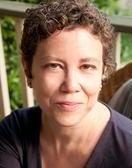
Do you hear a rumbling, creaking, sighing noise, like an iceberg melting? That’s the sound of policies designed to freeze out interfaith families, shifting and groaning as they thaw. Since the release of the 2013 Pew Research report on the Jewish American landscape (and the publication of Being Both: Embracing Two Religions in One Interfaith Family), I have been predicting a warming trend in engaging with interfaith families. Just in recent weeks, I note at least four new efforts by the Jewish community to include or acknowledge interfaith families:
1. A Conservative Jewish rabbi considered officiating at interfaith weddings, but then decided not to. Rabbi Wesley Gardenswartz, emailed his congregants in the Boston surburbs to say he was considering performing interfaith marriages, but only if the couple signed a “Covenant to Raise Jewish Children.” Interfaith families quickly pointed out that you cannot really extract such a promise about hypothetical children. A few days later, the rabbi backed off his proposal, noting that the “Covenant is not workable.”
My Response: This brave rabbi realized what many Reform rabbis (and the Catholic Church) have already realized. Requiring an interfaith couple to raise children in a particular religion as a condition for marriage is neither wise nor enforceable when both partners are on dynamic spiritual journeys. I deeply appreciate this rabbi’s attempt to address the hypocrisy of welcoming interfaith families into Conservative congregations, while refusing to attend or officiate at their weddings. But it really isn’t going to be possible to change this Conservative policy, without also accepting the children of Jewish fathers as Jews (“patrilineal descent”). Which needs to happen.
2. A Conservative Jewish youth movement relaxed their policy on interfaith dating (sort of). The leadership of the United Synagogue Youth (USY), a national teen group, voted to remove the phrase calling for national and regional board members to “refrain” from interfaith dating, though they did include language on “recognizing the importance of dating within the Jewish community.” After a fierce community backlash, teen leaders explained that the intent was not so much to endorse interfaith dating, but to show respect for the many teen leaders from interfaith families.
My response: More than any change, or lack of change, in policy, this story is fascinating because young Jews from interfaith families are making their voices heard. Among teens now, more come from interfaith families than from families with two Jewish parents. Going forward, as this generation comes into leadership roles in the adult Jewish community, I look forward to the inevitable acceptance and inclusion for interfaith families.
3. A prize sponsored by Russian Jewish philanthropists and the Israeli government was awarded to actor Michael Douglas, who was born to a Jewish father and Protestant mother and now identifies as a Reform Jew. Douglas is married to Welsh actress Catherine Zeta-Jones, who grew up Catholic. Douglas and Jones recently traveled to Israel for the Bar Mitzvah of their son Dylan (who, like my children, has only one Jewish grandparent, a grandfather). Immediately, bloggers and columnists questioned rewarding a wealthy movie star who has not been particularly active in the Jewish community, simply for maintaining some connection to his Jewish identity (and Israel). And this week, the CEO of the prize foundation suddenly quit. In awarding the prize, the Genesis Foundation explained that the Douglas family embraces their Jewish heritage “on their own terms” and that this “embodies an inclusive approach for Jews of diverse backgrounds.”
My response: Douglas was chosen because of his interfaith background, not in spite of it. In the Russian Jewish community in Israel, the exclusion of people who are “patrilineal Jews”, or do not have “kosher enough” conversions has been a huge issue. In a particularly cutting response entitled “Genesis Prize Goes to Michael Douglas. Really?” Jewish Daily Forward editor Jane Eisner stated baldly that “Douglas isn’t Jewish according to Jewish law,” ignoring the fact that he identifies as a Reform Jew. Note that even the more progressive American Jewish media sources are still filled with language excluding the growing number of “patrilineal” Reform Jews.
4. Interfaith Israel launches new tours designed specifically for people from interfaith families. Big Tent Judaism (formerly the Jewish Outreach Institute) is co-sponsoring these programs, starting this summer, for interfaith teens, young interfaith professionals, and interfaith families to visit Israel. The teen trip promises exploration of Jewish, Christian, Muslim, Druze and Baha’i cultures in Israel.
My response: Israel remains an uncomfortable topic for many interfaith families. In part this is because Orthodox control of religious identity in Israel excludes Reform Jews from interfaith families with Jewish fathers, and Jews who converted under the auspices of Reform rabbis, from being married or buried in Israel as Jews. Also, those of us from interfaith families are wary when we feel we are only hearing one side of any story story (for instance, the Israeli narrative but not the Palestinian narrative). Nonetheless, when compared with the Birthright trips to Israel, which which only accept those who identify as exclusively Jewish, these new trips are radically accepting of the fact that people (especially young people) from interfaith families have fluid and complex religious identities. In the application, interfaith teens are not asked to check religious identity boxes, and the trip is open to any teen with at least one Jewish grandparent. Program founder Michael Dorfman emailed me that “this trip is designed to embrace the duality of a teen’s interfaith identity and provide them with an experience that will speak to their needs.” As with any sponsored trip, it’s important to think about the goals of the sponsors. But I wish we had more US-based programs for interfaith teens using this kind of inclusive language.
Being Both: Embracing Two Religions in One Interfaith Family by Susan Katz Miller, available now in hardcover, paperback and eBook from Beacon Press.
About these ads
